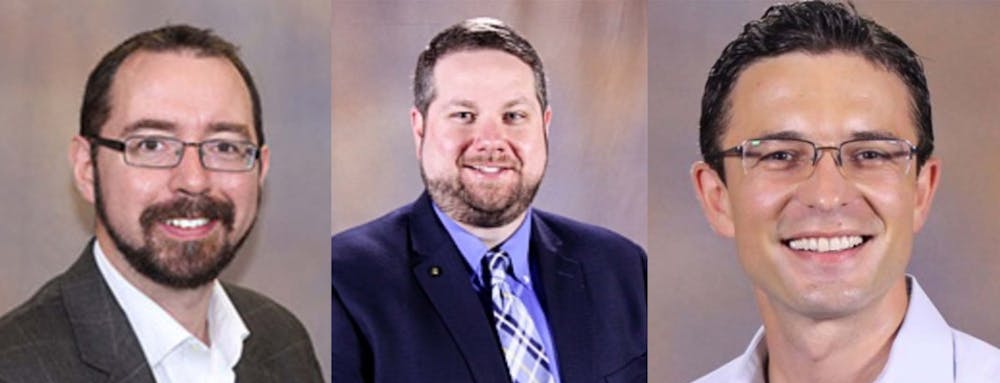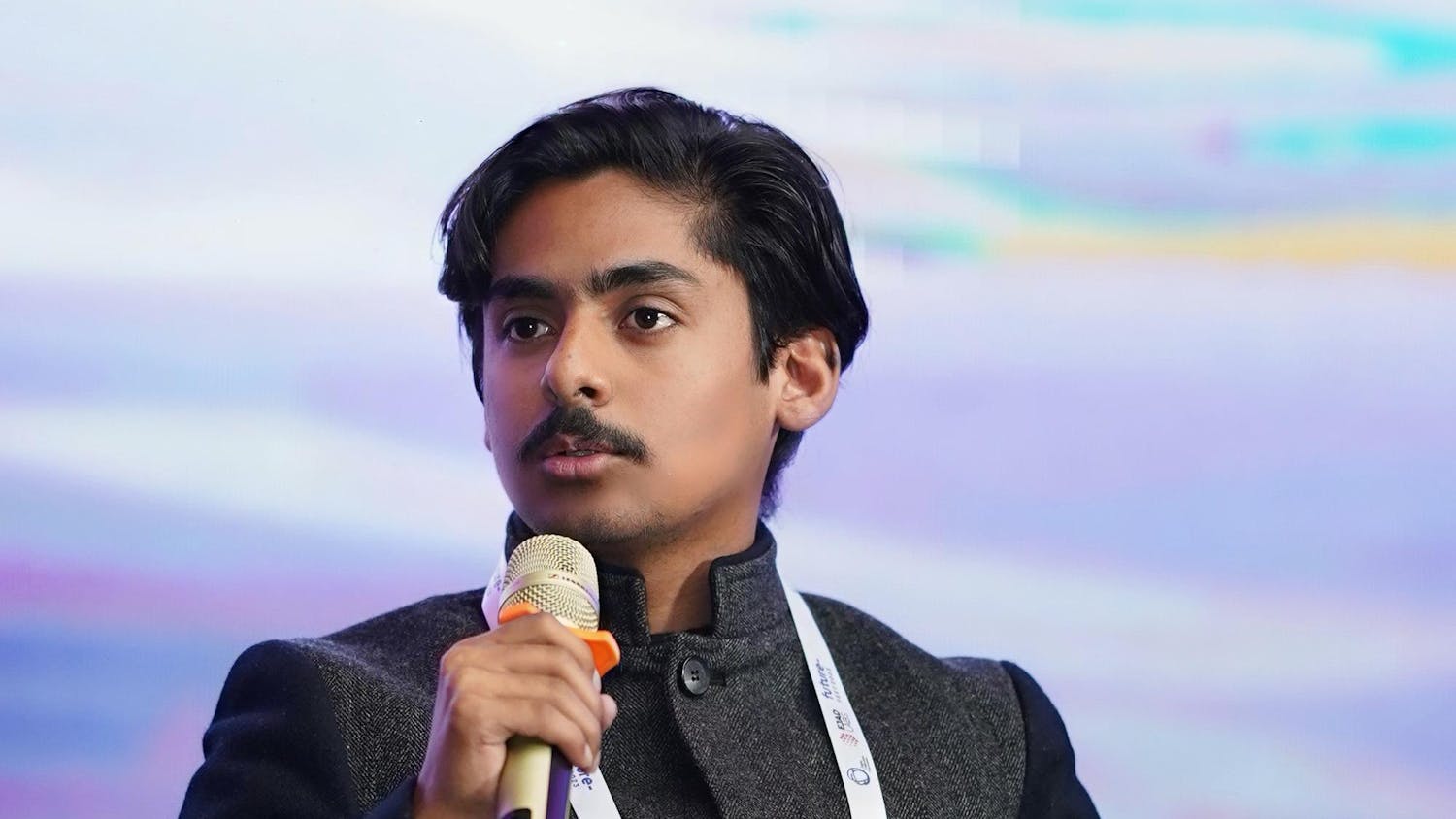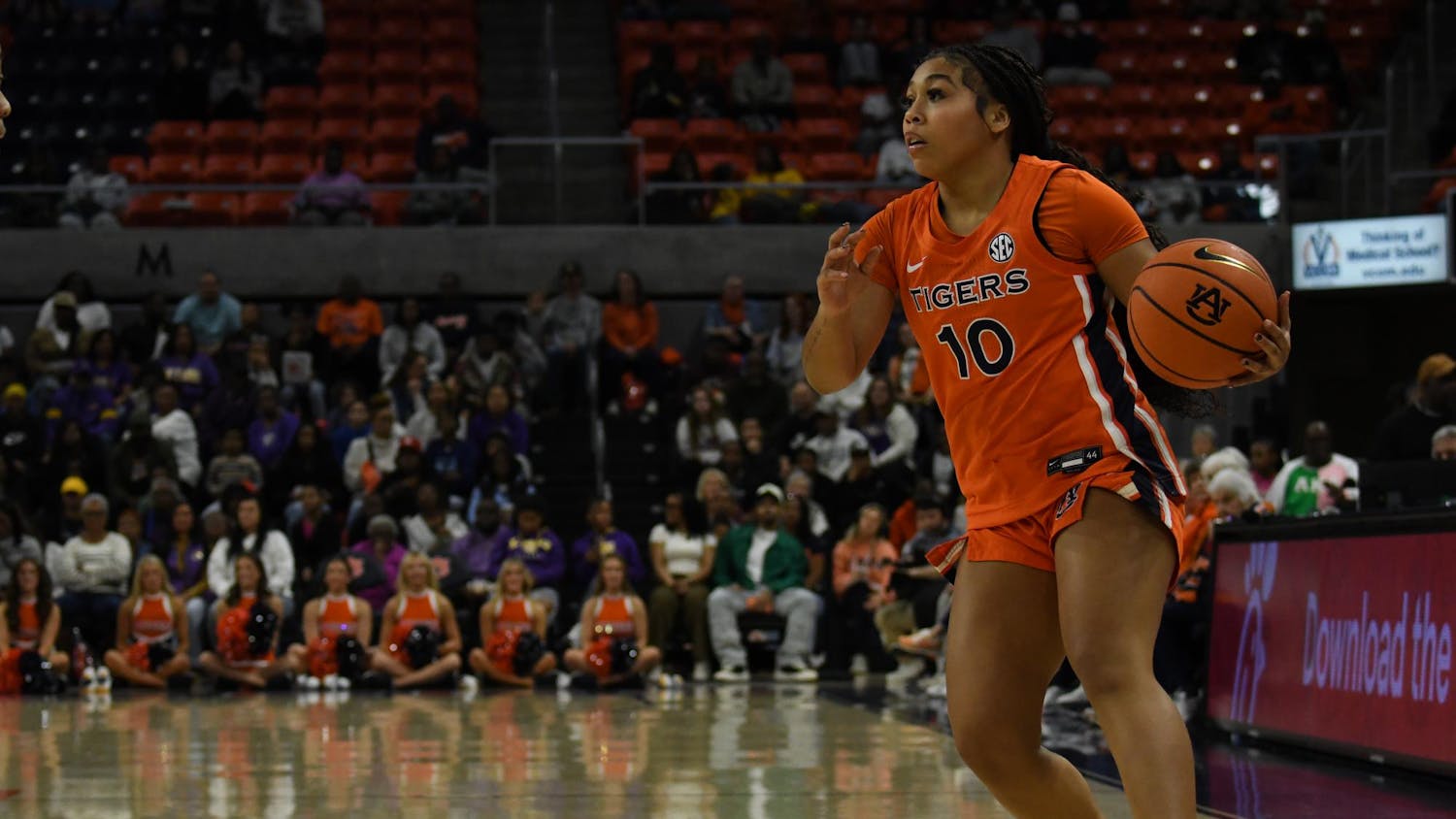Faculty from Auburn's political science department held a panel Tuesday evening to discuss the war in Ukraine.
"This is going to be one of those moments where we will look in history 30, 40 or maybe 100 years from now, and we remember how this plays out," said Matthew Clary, professor in political science.
Peter White, assistant professor in the department of political science, discussed the Russian and Ukrainian military performance. He pointed out that originally, Russia wanted to take over Ukraine and gain control within 24 hours with minimal damage, but this has not been the case.
"Right now, [Russia is trying to stop doing this cleanly and quickly], and is going to do it relatively slowly and messily," White said.
White discussed the strengths of the Russian military and its invasion strategy.
"Russia's military is structured around methodically blowing things up with rockets, cannons and bombs. A lot of analysts are scared that this is what Russia is going to do now," White said.
He also discussed Ukraine's attempt to gain public opinion using "information warfare."
"Ukraine is winning the information war," White said. "They have our sympathy. They have our respect. Russia has been caught flat footed in this area, which they are typically regarded as being quite good at."
White said that the Russian military has a long list of things it has done wrong. White said that Russian troops were not told they were heading to the Ukrainian border for training exercises, but instead that they were there to invade Ukraine.
White explained that many conscripted Russian soldiers were abandoning their trucks, so a lot of the food and resources could not get to the front line for the military.
Clary discussed what the United States and the rest of the global community have done to stand by Ukraine.
"What's kind of materialized the last four or five days in terms of the sanctions and isolations that's been levied against Russia is really impressive," Clary said.
Clary said that the sanctions will have an effect on Putin and Russia's economy.
"I guarantee Putin feels as isolated as he has ever felt. Their economy is in tatters, and it's just going to get worse," Clary said. "The average Russian is having a hard time paying their bills. People can't pay their mortgages because the interest rates have doubled overnight."
Clary said he felt that the sanctions will not be temporary and will be put in place long term to cut off business with Russia.
"This isn't going to just be a temporary thing. These are very long-term choices that these countries in Europe and companies are making," Clary said. "They are basically saying, 'Russia is closed for business.'"
Clary said that this is a historical moment for the United Nations since it's the 10th time in history the United Nations is holding an emergency session of the general assembly.
"While that doesn't actually mean they are going to do anything of legal substance ... it's going to be an opportunity for the world to stand against Russia," Clary said.
The final speaker, Pëllumb Kelmendi, assistant professor in the department of political science, spoke on how different schools of international relations explain the war.
Kelmendi spoke on the humanitarian aspect of the war and how it has affected the people of Ukraine.
"It's important to state the obvious at first. And that's that there are tens of millions of people in Ukraine right now facing violence, profound insecurity and uncertainty," Kelmendi said. "Families are being uprooted. Hundreds of thousands of people are being displaced."
Kelmendi discussed many of the potential causes of this war. Scholars will continue to debate the causes of this invasion for many years to come, but there are at last three key factors to pay attention to, he said.
"These factors have to do with power, they have to do with institutions, both internationally and domestically, and they have to do with ideas, norms and identities," Kelmendi said.
Kelmendi continued to discuss the shift of the global distribution of power and explained how China seems to be gaining more power while the U.S. seems to be losing some.
"This might have created an opening for Russia to reassert their ambitions in Europe," Kelmendi said.
At the end of the panel, Clary finished by discussing the possibilities of what may happen next.
"I think we all sense it," Clary said. "It's probably going to work out in Russia's favor. Russia has superior power. Eventually, they are probably going to win this fight."
While Clary thinks Russia will likely defeat Ukraine, he said Russia's actions will have long-term political consequences.
"Europe has detached themselves from Russia," Clary said. "That's going to last for a decade at least. The post-Cold War era is over. ... We are heading into a new era in which you're going to see this kind of Cold War mentality and behavior come back."
White had a different perspective.
"I think that Putin is in a really bad situation right now, and I don't think that the Russian military can sustain this indefinitely," White said. "I don't think Russia — economically and politically — can sustain this indefinitely."
Do you like this story? The Plainsman doesn't accept money from tuition or student fees, and we don't charge a subscription fee. But you can donate to support The Plainsman.





